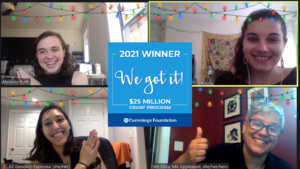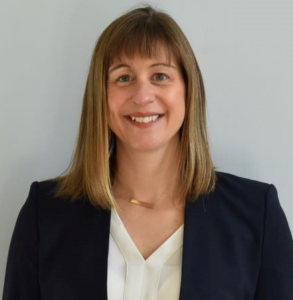Boston, MA — Today, the U.S. Supreme Court made its decision in the historic Johnson v. Grants Pass case, allowing cities to punish people with no choice but to sleep outside for using things like pillows, blankets, or cardboard boxes to protect themselves from the elements and dealing a devastating blow to the civil rights of our unhoused neighbors.
Deborah Silva, Executive Director of Massachusetts Appleseed Center for Law and Justice, issued the following statement:
“The Court’s decision is an affront to the unhoused residents of Grants Pass who bravely stood up for their rights, the hundreds of thousands of individuals forced by circumstance and systemic inequities to sleep outside each night, and the frontline workers and advocates striving to support them. The youth and young adults experiencing homelessness in our communities are exceptionally vulnerable to this ruling’s consequences, already facing unique barriers to obtaining shelter and a scarcity of age-appropriate services. Data collected via the Massachusetts Youth Count shows that this is even more acute for teenagers who leave home before age 18. The last thing these young people need is a criminal record for simply existing in public.
The goal of criminalization has always been clear: To banish our unhoused neighbors from sight. To make them disappear. To render them invisible. As an organization working to support youth experiencing homelessness, a population that is chronically under-identified due to stigma and shame, we know that pushing people further to the margins only deepens the problem.
This ruling will not solve the surge in homelessness among adults or youth we are seeing in Massachusetts and around the country. It will not prevent unjust evictions. It will not generate housing that people can afford. What it will do is make this crisis worse by funneling people already out of options into the courts, trapping them in cycles of incarceration, exorbitant fines, and trauma.
We stand with our fellow advocates in condemning today’s ruling. The fight to ensure everyone has a safe and stable place to call home continues.”
###
MA Appleseed is driven by a mission to promote equal rights and opportunities for Massachusetts residents by developing and advocating for systemic solutions to social justice issues. Through policy analysis and research, coalition building, education and training, community organizing, and advocacy, the nonprofit seeks systems-level change so all Massachusetts families and youth can exercise their legal rights, build pathways out of poverty and crisis, and thrive. Responding to emerging and enduring inequities, MA Appleseed addresses an array of complex issues including self-representation in the civil justice system, language access for immigrant families, the school-to-prison pipeline, and youth homelessness. To explore recent research, find resources, sign up for opportunities to take action, or donate, please visit massappleseed.org.
Want to stay informed on the latest issues Massachusetts Appleseed is working on?
Sign up for our mailing list.


 When Kathy McGrath, the pro bono manager for Liberty Mutual’s legal department, heard about
When Kathy McGrath, the pro bono manager for Liberty Mutual’s legal department, heard about 